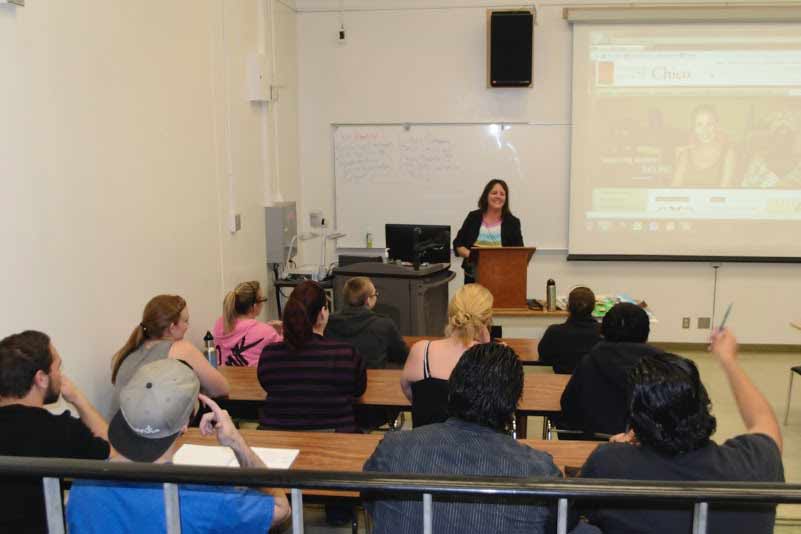
When John Vrooman went to his first class of the spring semester, he didn’t think he’d be sitting on the floor.
Vrooman, a sociology major, is enrolled in Sociology 363, “Sociology of Human Stress,” a class taught by Marianne Paiva. The class had over 50 wait-listed students at the beginning of the semester.
“I came in and was disappointed because I was enrolled, but I had to sit on the stairs on the ground like everybody else,” Vrooman said. “It wasn’t too pleasant. My back hurt the whole time.”
The class is just one of many courses that have an overwhelming amount of wait-listed students, Paiva said.
“We’ve become significantly more impacted,” she said. “I see a lot more students on my waitlist than I ever have.”
Paiva has been teaching the class for two years, she said. She has taught three times as many sections of “Sociology of Human Stress” in the past year because of the unexpected popularity of the Health and Wellness pathway.
In previous years, Paiva was teaching one section of Sociology 363 with few wait-listed students, she said. Now she teaches three sections of the class and had more than 50 wait-listed students in each class.
The long waitlists are frustrating for students expecting to graduate this semester, she said.
“We just have a lot of students who are trying to complete their pathway,” Paiva said. “They’ve done all of their lower-division general education and now they’re trying to get into upper-division, which is very, very impacted.”
The reason certain classes are so impacted is because the six lower-division general education classes funnel students from the Health and Wellness pathway into just three upper-division general education classes, Paiva said.
In order for more students to take the courses they need, more sections of “Sociology of Human Stress” are being offered during the fall and spring semesters. Summer sections of the class are also being offered to students, according to the Chico State Summer Session schedule.
William Loker, the dean of undergraduate education, said the departments are still trying to figure out what the demand is for pathway courses.
“In some ways, it’s like growing pains and adjustments as people get used to the new program,” Loker said.
Sections in the pathways, called “stones,” are set to offer students three different courses. Students must take one of the three offered classes to satisfy the stone in their pathway.
However, certain pathways, like the Science, Technology and Values pathway, offer just one or two courses in upper-division stones so every student in the given pathway is trying to take the same class, Loker said.
An announcement was recently sent to all of the departments encouraging professors to apply to teach empty spots in the general education program, he said.
This is only the second year of the pathways system and both Loker and Paiva said that any new system is going to have kinks.
“I really like the idea of the pathways,” Paiva said. “I like the concept of making general education more cohesive. I think that’s a good thing, but this is our first year that we are really feeling the impact of the pathways and I think it was unexpected.”
Madison Holmes can be reached at [email protected] or @theorion_news on Twitter.








